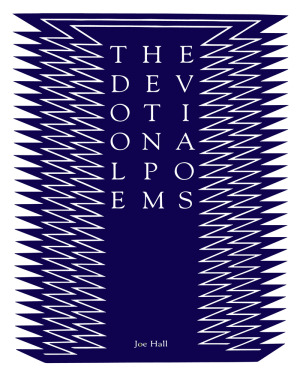25 Points: Swamp Isthmus
 Swamp Isthmus
Swamp Isthmus
by Joshua Marie Wilkinson
Black Ocean, 2013
88 pages / $14.95 buy from Black Ocean
1. I’ve been working on this since this past spring. After reading Beyond The Like Factory & The Hatchet: Rethinking Poetry Reviewing by Joshua Marie Wilkinson, I knew I had to finish this review. This is actually a scary thing to write now.
2. Swamp Isthmus is Joshua Marie Wilkinson’s first book with Black Ocean and the second book in his No Volta pentalogy (first is Selenography, Sidebrow 2010; third will be The Courier’s Archive & Hymnal, Sidebrow 2014). I’ve not read Selenography so there is perhaps some things I’ve missed by not having done so.
3. A swamp is a living-dead landscape; the living feed off of the dead and dying, the most dead areas are filled with the most life and the least dead areas are those with the least life.
From the Hart Crane epigraph (The resigned factions of the dead preside) in the very beginning of Swamp Isthmus, Joshua Marie Wilkinson creates a zombie landscape, a zone that infects the living with symptoms of deadness. In a zombie film this deadness comes to the living with capitalist critiques of our alienating existence, but in Swamp Isthmus we see a zombie that carries critiques of the ecologic and nostalgic sort.
4. The lyrics of Swamp Isthmus are a living-dead endeavor: precise breaks eluding a narrative; linearity reduced to phrases contained in the line.
to disappear you must
tunnel discreet
descrying over nightfall
with unclogged wind
this coast is longer than a train track
needing coarse woolen cloth &
the clothes you’re in
so needing a bad song
to whistle what’s known
but may stick
to another’s mouth
5. Similar to what Zach Savich says about Wilkonson’s lyrics, to kill a zombie takes precision: remove the head, destroy the brain.
6. In The Dead Rustle, The Earth Shudders, Evan Calder Williams points to something that is obvious in Swamp Isthmus:
“…the undead have never really been dead in the first place—they never died.’
7. To cross a swamp takes precision and a mind for the contradiction of the living-dead: step here, not there; eat this, not that; drink plenty of water, but don’t drink the water.
footpaths marked by
false stars
it gathers up in
this bladder of light
8. the trees palsy/ to our bad lines.
9. In some respects, there is an admission with these lines of the failure of poetry to enact this landscape; the lines aren’t good. In some respects it’s proof that poetry works: even the bad lines cause the landscape to shudder.
10. There may be an actual “Swamp Isthmus.” The book’s title might be a reference to Gastineau Channel in Alaska, which at low-tide creates an isthmus from mainland Alaska to Douglas Island. Fritz Cove Road, mentioned in the section, I Go By Edgar Huntly Now, is a road that “dwindles down/to a patch of currants” (note the clever word play on ‘currents’) but it also ends at the place where Gastineau Channel meets Fritz Cove. A place that may eventually be unnavigable by watercraft. A place severely affected by glacial melt/global warming. READ MORE >
December 3rd, 2013 / 5:33 pm
Baltimore Book Club on Joe Hall
 Discussed: The Devotional Poems by Joe Hall
Discussed: The Devotional Poems by Joe Hall
Present: Joseph Young, Amanda McCormick, Tracy Dimond, Caryn Lazzuri, Laura van den Berg, Linda Franklin, Matthew Zingg, Jamie GP, Chris Mason, Dave K, Adam Robinson
Tardy: Megan McShea
Jamie GP: Don’t read anything, don’t read anything about Star Trek, just go see it.
Adam: Chris, I just told everyone we are going to take notes and put them on HTMLGiant like a review, is that okay?
Chris: Cool.
Adam: With all our names.
Chris: Cool.
Joe: All right. Do people like this book? I mean I want to call this guy Joe Hallmark because it’s so sappy.
Dave K: Oh!
Linda: I actually didn’t like it at all. I liked about 8 lines. READ MORE >
25 Points: Fjords Vol. 1
 Fjords Vol. 1
Fjords Vol. 1
by Zachary Schomburg
Black Ocean, 2012
72 pages / $14.95 buy from Black Ocean
1. Fjords Vol. 1 is something I could have read in a few hours—easy.
2. It took me 17 days to read Fjords Vol. 1 all the way thru.
3. Fjords Vol. 1 is 57 pages.
4. I have been fascinated/infatuated by Zachary Schomburg-stuff for quite some time. I sent him an email once but he never replied. I assume this is because he was too busy writing awesome fucking poetry.
5. If I wrote awesome fucking poetry like Zachary Schomburg, I probably wouldn’t have the time to reply to emails from people I have never met IRL.
6. It’s not very hard to read Fjords Vol. 1, which is nice. But it’s also not meant to be very hard, I don’t think. It’s like something that is easy to learn but hard to master. Like chess, for example. Or swimming. The Tecktonik dance. I don’t know. (But) that’s how I feel about Zachary Schomburg poetry.
7. If Fjords Vol. 1 had been a homework assignment in high school, I would have found it to be very easy. You could definitely read it all in one night/sitting (if you really wanted to, and I sort of allude to this already).
8. But there is so much to understand and feel and grasp and learn and write down and think about—which is why I love Fjords Vol. 1 so much.
9. Like the poem Staring Problem, in its entirety. “A woman walks into a room. I am in a different room. What has happened to your eyes? she asks.”
10. I feel like, maybe, sometimes, Zachary Schomburg is too smart for me to understand—but I generally feel like this about all poetry—so I keep reading the same line over and over, because I keep thinking “No, this is not hard. I am making it hard. I am pretty sure I can understand anything,” and even after several re-readings (now)—I still cannot grasp everything there is to grasp in the book. That’s fine though. And this is not a bad cannot-grasp-everything. This is a good cannot-grasp-everything. A book that is challenging (to/for) me. Something I can come back to, later in life, after I have read more books and feel like I can finally maybe understand things better. READ MORE >
February 26th, 2013 / 12:09 pm
Dear People of the Future…
Renowned Bay Area songwriter, Michael Zapruder, has just released a highly ambitious project titled Pink Thunder, which involved him setting 22 poems (written by excellent contemporary poets including David Berman, Valzhyna Mort, Matthew Rohrer, Bob Hicok, and Noelle Kocot) to music. Beyond the straight-forward release of the musical material on pink vinyl (The Kora Records), Black Ocean has put out a hardcover book containing a CD and beautifully hand-lettered copies of the poems rendered by Arrington De Dionyso. Zapruder also created a series of what he calls “portmanteaus,” small sculptural objects that function as digital music boxes that play songs from Pink Thunder. The project, which was 6 years in the making, originated with Zapruder joining the Wave Books poetry bus tour for a week, meeting and working directly with the cream of the crop of young, innovative poets. [Also see this article in the San Francisco Bay Guardian]
Full Disclosure: While I had nothing whatsoever to do with the making of this project, I have known and worked with Michael since 2004, and I wrote the introduction to the Pink Thunder book. However, I found the scope of this project to beg greater creative and cultural concerns than could be fully addressed in the introduction to the book.
***
Dear People of the Future,
With your lightning powered aggregators, your nanomembranophones, your hydrolytic isomer skin-suit apparatus, it will require an imaginative leap wider than the great San Andreas Canyon that separates The People’s Republic of California from the once great nation of the “United” States to conceive of the cultural landscape in which Michael Zapruder’s Pink Thunder, which I recommend you ingest via light pulse array, was created.
This is a little difficult to explain, but for a brief aberrant cycle in the history of human civilization, a violent minority of militaristic nations operated according to a spurious system based almost exclusively on the degradation of spirit via mass production and mechanized standardization, and on the pacification of the majority populace by reducing their access to education, nutritious food and health care, and increasing their access to pleasure-center stimulants. Weird, right? It’s likely you’ve never even heard of this cycle as its ideas were surely so overwhelmingly disproven and unanimously rejected as to be expunged from the annals of history.
January 25th, 2013 / 12:00 pm
Girl Without Arms by Brandon Shimoda
 Girl Without Arms
Girl Without Arms
by Brandon Shimoda
Black Ocean, 2011
96 pages / $14.95 Buy from Black Ocean or SPD
The title may be referencing a Grimm’s Fairytale called The Girl Without Hands. It could also just be about a girl without arms. I don’t know. It doesn’t seem integral to enjoying the work or attempting to understand it. The work is a trip, an experience more than a message, a system that works by itself. I’m going to quote a lot and talk a little.
Shimoda interrupts himself. The syntax is complicated in GWA. It’s like the syntax itself is surreal.
The Cabin goes up
In rhubarb. Rhubarb
Washes over-”
The many voices sometimes sound mid-sentence, mid-conversation, perhaps overheard. The words are mashed up and mixed together with impossible situations and small haiku moments.
Sometimes The Girl Without Arms feels like a poetry devoid of people. Like it sprung from the earth elementally, without being crafted by anyone or like it’s what’s left after all the people are gone. Sometimes it feels austere and lonely. There is a kind of transcendence in the small, the slightly off diction, the twisted cadences and syntax.
Do not move.
There are no people
Like it.”
In some sections it’s as if the people that might exist are so minimal as to be hard to notice. The little ecologies of Shimoda’s short unpredictable stanzas are aesthetically charged and abstract; they are essential tiny interrelated linguistic artifacts that seem to stand independent of time or context. Shimoda’s words tend to connote more than denote.
December 7th, 2012 / 6:03 pm
Matthew Henriksen’s Ordinary Sun
“The great painter Degas often repeated to me a very true and simple remark by Mallarmé. . . . One day he said to Mallarmé: ‘Yours is a hellish craft. I can’t manage to say what I want, and yet I’m full of ideas. . . .’ And Mallarmé answered: ‘My dear Degas, one does not make poetry with ideas, but with words’.”
Paul Valéry in “Poetry and Abstract Thought” from The Art of Poetry, which is an essay I was supposed to read in college but didn’t. It’s good though, and Valéry is using this anecdote on the way to illustrating a distinction between poetry and “purposive language” such that the latter is akin to walking to a destination while poetry, by contrast, is dancing.
I’m reading Valéry now as fodder for a conversation I’m having with my mom, in which I hope to justify Matthew Henriksen’s abstruse but beautiful book, Ordinary Sun, out now from Black Ocean. It was a valuable challenge to have Mom read these poems to me because her disinterestedness problematized the book. She’s not willing to see the poems as incommunicative but lovely because she is only interested in this “purposive language.”
 I emailed her and argued that clearly Henriksen cares about what he’s writing, “so these poems are a good place to start exploring the ineffable. Language — words on their own, without communicative meaning — is one of the essential things about being human,” and she agreed, saying that “yes, words ARE one of the essential things of being human, but it is so they do make sense/meaning with each other, in contrast to nonsense.” So take that, Henriksen. I don’t think my mom likes your book.
I emailed her and argued that clearly Henriksen cares about what he’s writing, “so these poems are a good place to start exploring the ineffable. Language — words on their own, without communicative meaning — is one of the essential things about being human,” and she agreed, saying that “yes, words ARE one of the essential things of being human, but it is so they do make sense/meaning with each other, in contrast to nonsense.” So take that, Henriksen. I don’t think my mom likes your book.
April 27th, 2011 / 10:49 am
Joe Hall’s Pigafetta Is My Wife
I spent about $400 on books in Denver. This was the first I read the second I got home: Joe Hall’s Pigafetta Is My Wife. It is gorgeous, mysterious, and moving, in a way I haven’t felt of a book in a long time. I’m keeping it by my bed.

Pigafetta Is My Wife enters the crisis that is the love between the colonizer and the colonized. These poems fragment the journals of Antonio Pigafetta, a 16th Century traveler who recorded Magellan’s hellish circumnavigation of the globe, while tracking a present-day speaker and his beloved as they are distanced and reunited across the map. Along the way we visit historical moments including a botched circumcision as performance art, the Rape of Nanking, and 17th century missionaries in the Philippines. Through this intertwining of narratives the book reveals how the past and present are visceral beasts caught in a cycle of passion and destruction. Like an epic murder ballad, Hall moves from collage to epistle, suffering to ecstasy, while pinpointing what is at stake in the pursuit of love and the dismantling of the self.
Praise for Pigafetta Is My Wife:“A genuinely fine work, moving beautifully between Magellan’s voyage—the ethics therein, with language informed by discovery literature—and a series of epistles, taking the notion of circumnavigation to an unforeseeable confessional level. I like the work very much—that making necessary of history—and see it as one of lyric poetry’s responsibilities. The epilogues, too, are beautiful.”—Dan Beachy-Quick“Almost impossibly grand in scope Pigafetta Is My Wife is a rare achievement and quite a debut. Hall’s poetry crosses contemporary love and ancient epic, folding inward and out by motion derivative of the sestina and pantoum, so that whether via image or address, beautiful shards fall: ‘A chrysanthemum blossom sails across a bowl of milk.’ Emotion accretes in accordance with ambition. A treatise on the action of discovery, this is a book to be taken in whole.”—Sally Keith
Read some poems from the book here.
Read a poem not in this book here.
Buy this book direct from Black Ocean here.
BLACK OCEAN ACCEPTING POETRY MANUSCRIPTS UNTIL JUNE 30TH AND I AM SITTING BY AN OVEN THAT IS ON AND IT SMELLS LIKE GAS I AM DIZZY
go here for submission guidelines. i didn’t know these mahfackahs was in chicago. i’m finna walk a manuscript over pretty soon.
Catch it if you Can: The Sad Meal, by DJ Dolack

I met DJ Dolack for the first time a few weeks before Christmas, at a party. Turns out we’ve both written for Coldfront. So okay, nice to meet you, DJ. Then the next week I’m getting ready to give this reading for Hexed, and notice that I’ll be sharing a bill with–among others–one DJ Dolack. Also, now that I think about it, weren’t me and dude both in the Fall 2008 issue of diode? (Yes.) Weird how much your life can overlap with somebody else’s without either of your even knowing it. Well, anyway, when we were at the reading, DJ gave me a copy of his 2005 chapbook, “The Sad Meal,” which was published by Eye for an Iris and distributed through Black Ocean. It’s a gorgeous little book, on nice paper, about the size of a thank you card (it came in an illustrated envelope) and bound with a single staple. I have no idea how many were printed, or how to get one (Eye for an Iris’s site seems to not have anything on it, and the Black Ocean page for “The Sad Meal” doesn’t exist anymore) but I have one and I think it’s pretty cool.

